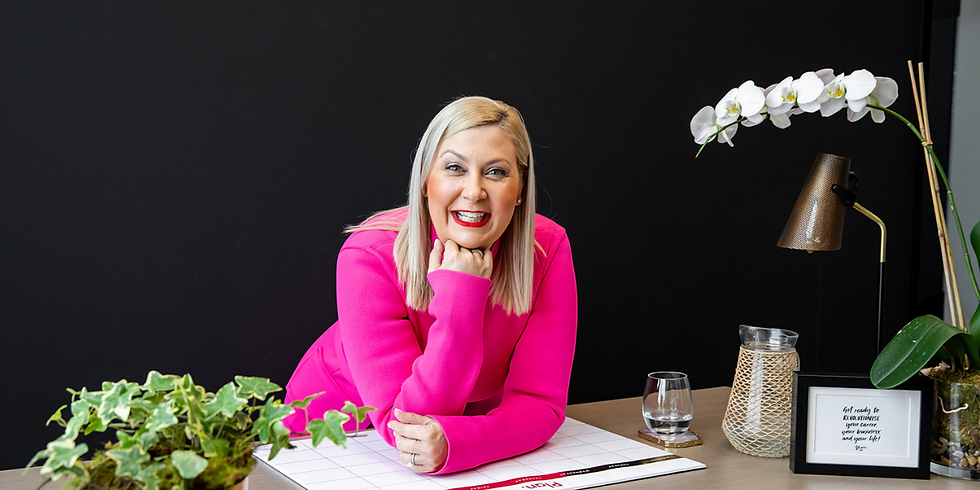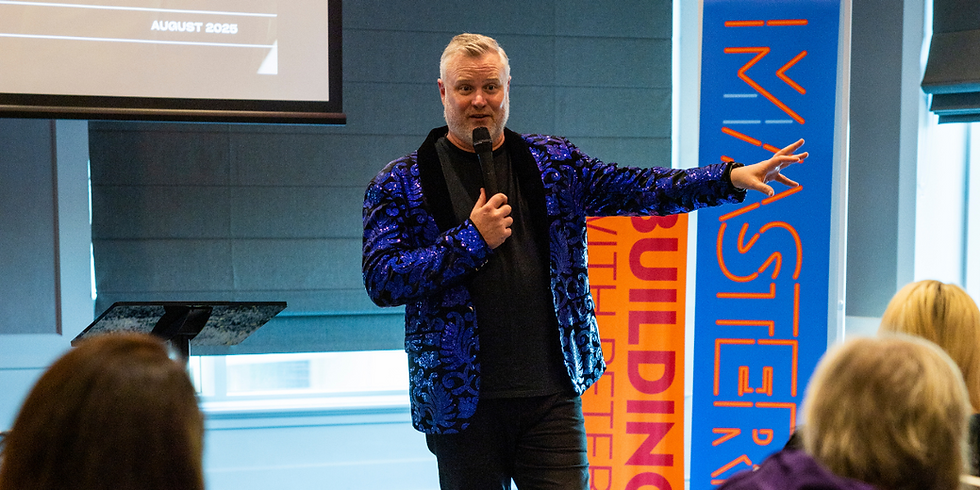How to build a high performance dream team – tips from agents who’ve done it.
- Sherrie Storor

- Jun 10, 2025
- 4 min read
At the 2025 LEADER Conference, I brought together four outstanding agents and agency leaders from across the country to unpack one of the most powerful business models in real estate today: the EBU, or Effective Business Unit.
This panel consisted of some of my 1:1 coaching clients, including the Number 1 agent for Coronis, Dion Saab, the Number 1 agent in Cairns, Michelle Champion (Champions in Real Estate), one of RE/MAX’S top agents Leanne Druery (RE/MAX Select, Mackay), and Nathan Casserly, who is Executive Director of REIA Large Residential Agency of the Year, Ouwens Casserly.
Each has built a thriving team and business using the EBU approach.
Whether you’re a solo operator looking to scale or a principal refining your internal structure, this is your roadmap to building an EBU that performs.

Step 1: Define and communicate your vision
Every EBU begins with a compelling vision.
As Dion shared, he started his EBU journey to move beyond just selling homes month-to-month. “It was really just trying to work out: is there another way?” he said.
With coaching, Dion transformed from a high-performing solo agent into the director of a team writing more than $2.15 million in GCI annually.
Nathan Casserly emphasised that vision isn't just for recruitment – it's for alignment.
“It’s very hard to get people to follow if you're not clear on that vision,” he said.
His agency has rolled out the EBU structure not just in sales, but across property management and leadership roles.
Action step: Get clear on what you want your business and life to look like. Craft a vision statement and use it to align your team through conversations, check-ins and celebrations.
Step 2: Structure the right roles with the right people EBUs succeed or fail based on team structure and fit.
Michelle admitted that early on, she hired reactively.
“I was hiring the wrong people and trying to make it work instead of it just working,” she said.
The turning point came when she shifted focus to hiring intentionally - prioritising values, mindset and clarity of role.
“Getting that ride-or-die person and a solid EA just makes the world of difference,” she said.
Today, her team functions with alignment and momentum because everyone knows their role and fits the vision.
Dion echoed the importance of structure.
His EBU includes a lead agent (himself), two co-agents and a PA.
The team relies on my 51-point checklist to ensure every task has an owner and nothing falls through the cracks.
Action step: Design your dream team structure. Define each role’s responsibilities before hiring. Then hire for fit, not just skill. The right people in the right roles are everything.
Step 3: Implement consistent systems
Processes fuel growth. Dion credits much of his success to replacing guesswork with structure. “It was kind of a figure-it-out mentality before. Now it's very structured and planned.”
From handling enquiries to prepping for open homes, every part of Dion’s team has a system. That structure creates the freedom to grow.
Action step: Choose one repeatable task and systemise it today. Over time, build documented workflows for everything.
Step 4: Create a culture of connection
For Michelle, introducing weekly one-on-ones with her team changed everything.
“It created a space to talk about accountability, set goals, KPIs… and talk about personal lives. Everyone felt appreciated, heard and seen,” she told the conference.
Real estate is high pressure. Having regular conversations with your team builds trust, improves performance, and strengthens loyalty.
Action step: Book recurring one-on-ones with every team member. Make them personal, not just task-focused.
Step 5: Lead by example (and lead yourself first)
High-performing EBUs need high-performing leaders. That means looking after yourself.
Michelle said she had to prioritise what filled her cup.
“If I didn’t have the energy to turn up and lead my team, it was never going to work,” she said.
Leanne, who sold 117 properties last year, said the turning point for her was learning to delegate.
“I thought everyone needed me. But when you train, mentor and empower your team, they actually don’t mind when you’re not there.”
Leanne now takes up to 10 weeks off per year, proving it’s possible to build both a consistently high-performing business and freedom.
Action step: Protect your energy. Take regular time off and empower your team to operate without you.
Step 6: Don’t just focus on the mechanics – focus on the dynamics
Nathan believes the heart of a successful EBU lies in emotional intelligence.
“It’s not just the mechanics, it’s the dynamics,” he said.
That means understanding what drives your team members and building strong interpersonal relationships.
He uses a “credits in the bank” approach to giving feedback: build trust through praise and consistency, so when tough conversations are needed, they land well.
Action step: Acknowledge wins, get to know your people, and keep building trust. When challenges arise, that trust will carry you through.
Final thoughts
EBUs aren’t just a model for growth, they’re a blueprint for building a business that serves your clients, your team, and most importantly, your life.
As Nathan shared, not every agent wants to build an EBU – and that’s okay.
But if you do, commit to the process. Get the mechanics right. Master the dynamics. And lead with clarity and care.







Comments